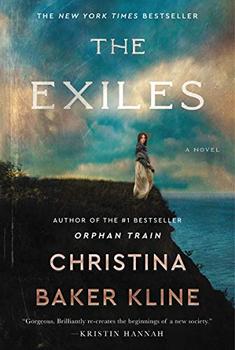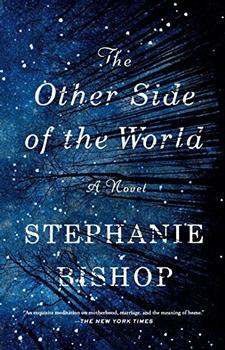Summary | Excerpt | Reading Guide | Reviews | Beyond the book | Read-Alikes | Genres & Themes | Author Bio

Winner of the Christina Stead Prize for Fiction, Kate Grenville's The Lieutenant - a stunning follow-up to her Commonwealth Writers' Prize-winning book, The Secret River, is a gripping story about friendship, self-discovery, and the power of language along the unspoiled shores of 1788 New South Wales.
As a boy, Daniel Rooke was always an outsider. Ridiculed in school and misunderstood by his parents, Daniel could only hope, against all the evidence, that he would one day find his place in life. When he enters the marines and travels to Australia as a lieutenant on the First Fleet, Daniel finally sees his chance for a new beginning.
As his countrymen struggle to control their cargo of convicts and communicate with those who already inhabit the land, Daniel immediately constructs an observatory to chart the stars and begin the scientific work he prays will make him famous. But the place where they have landed will prove far more revelatory than the night sky. Out on his isolated point, Daniel comes to intimately know the local Aborigines, and forges a remarkable connection with one young girl, Tagaran, that will forever change the course of his life. As the strained coexistence between the Englishmen and the native tribes collapses into violence, Daniel is forced to decide between dedication to his work, allegiance to his country, and his protective devotion to Tagaran and her people.
Inspired by the notebooks of astronomer William Dawes, The Lieutenant is a remarkable story about the poignancy and emotional power of a friendship that defies linguistic and cultural barriers, and shows one ordinary man that he is capable of exceptional courage.
Excerpt
The Lieutenant
Daniel Rooke was quiet, moody, a man of few words. He had no memories other than of being an outsider.
At the dame school in Portsmouth they thought him stupid. His first day there was by coincidence his fifth birthday, the third of March 1767. He took his place behind the desk with his mother’s breakfast oatmeal cosy in his stomach and his new jacket on, happy to be joining the world beyond his home.
Mrs Bartholomew showed him a badly executed engraving with the word ‘cat’ underneath. His mother had taught him his letters and he had been reading for a year. He could not work out what Mrs Bartholomew wanted. He sat at his desk, mouth open.
That was the first time he was paddled with Mrs. Bartholomew’s old hairbrush for failing to respond to a question so simple he had not thought to answer it.
He could not become interested in the multiplication tables. While the others chanted through them, impatient for the ...
The Lieutenant revisits the same period Grenville wrote about in The Secret River (2005), the first years of the Port Jackson penal colony, but this is a more compact, leaner work. Although based on the diaries of William Dawes this is not your typical historical fiction - Grenville is as much, if not more, focused on observing the mind of her protagonist than she is in exploring the vista he beholds. As we inhabit his mind, his moral dilemmas become ours, and we share his isolation. Written with a poet's sensibility, this is an adventure into the nature of language and culture and of how people can connect across seemingly impenetrable barriers...continued
Full Review
 (601 words)
(601 words)
(Reviewed by First Impressions Reviewers).
You might wonder why Britain would choose to send ships filled with convicts
and their jailors to, quite literally, the other side of the world. The
answer is simple economics.
In the 1780s, the British population was increasing fast, as were the effects of
the Industrial Revolution which led to the displacement of a great many people who, without land, rights or jobs, were reduced to stealing.
Meanwhile, Britain, having lost the American Colonies, was on the lookout for
new land to colonize. The east coast of Australia, charted by The
Endeavor in 1770, looked like it had potential. So it was decided
that instead of using slaves, the infrastructure of the new colony would be
built with convict labor -...

If you liked The Lieutenant, try these:

by Christina Baker Kline
Published 2021
The author of the #1 New York Times bestseller Orphan Train returns with an ambitious, emotionally resonant historical novel that captures the hardship, oppression, opportunity and hope of a trio of women's lives - two English convicts and an orphaned Aboriginal girl - in nineteenth-century Australia.

by Stephanie Bishop
Published 2017
In the tradition of The Hours and Revolutionary Road comes a novel set in the 1960s about marriage, motherhood, identity, nostalgia, and the fantasy of home.




If you want to build a ship, don't drum up people... but rather teach them to long for the endless immensity of the...
Click Here to find out who said this, as well as discovering other famous literary quotes!